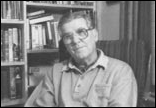The Records of Korean B- and C-Class War Criminals |
|
 |
Director, Sound: Motohashi Yusuke Photography: Komada Ken 'ichirou Editing: Okuyama Keiji Music: Yakubo Tatsuya Producer: Kawamura Yutaka Source: Japan Academy of Moving Images 1-16-30 Manpukuji, Aso-ku, Kawasaki, Kanagawa 215 JAPAN Phone: 81-44-951-2511 / Fax: 81-44-951-2681 or: Motohashi Yusuke 5-14-4 Mizonuma, Asaka-shi, Saitama 351-0023 JAPAN Phone / Fax:81-48-466-6667 e-mail: EZP03570@niftyserve.or.jp JAPAN / 1997 / Japanese with English subtitles / Color / Video / 62 min |
|
At a time when young Japanese documentarists have mostly turned
to personal topics, there are still a few engaged in socially
and politically committed filmmaking, and The Depth of the Truth is one of the better-made examples. Produced by Motohashi Yusuke
as his graduation work for the Japan Academy of Moving Images,
the film school run by Imamura Shohei and the critic Sato Tadao,
the video thoroughly pursues the issue of reparations for Koreans
charged with war crimes committed under the direction of the Japanese
military in WWII. Extremely well-researched for a student production, the documentary's
authenticity as a historical record makes up for a lack of formal
originality and a critical stance towards its own subjects. |